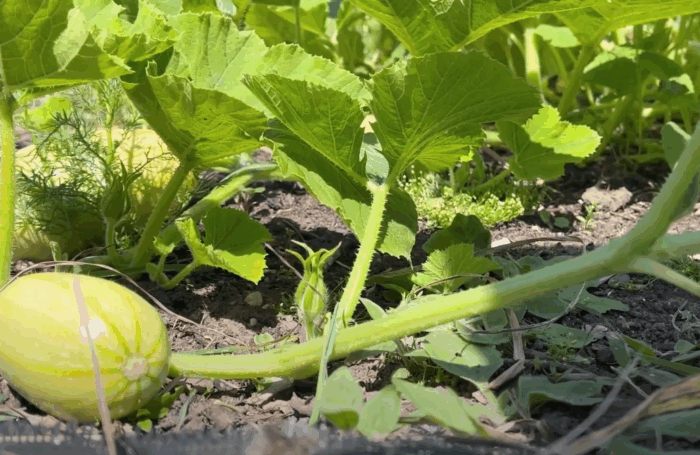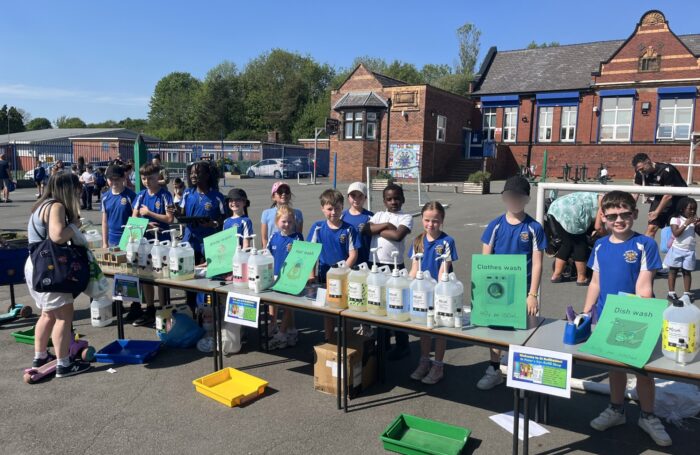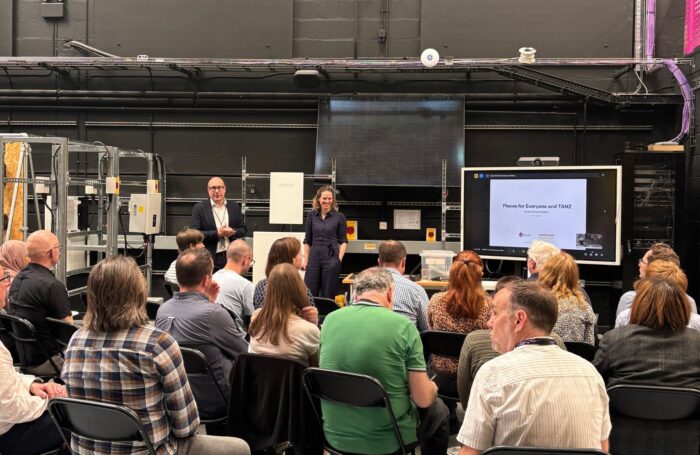From community groups and charities to businesses and schools, we believe that everyone has a role to play in helping nature recovery across Greater Manchester. We’ll be shining a spotlight on the passionate individuals who are already leading the way – our Local Nature Champions.
Claire Biggs is Director and Project Manager at Sustainable Northmoor Urban Greening (SNUG).
Tell us about your project.
The SNUG project is an urban greening project based in the Northmoor area of Longsight, which looks at improving green spaces in the local area. The project covers four main areas:
- Working with another Community Group, Bollyfit CIC, to improve a small community garden which belongs to Stanley Grove School. The aim is to make this a more usable community garden and to provide a space for the Bollyfit Group and local community to plant and grow food crops and have a social green space.
- We have negotiated with the City Council to have Street Trees Planted along one of the main roads in the area.
- Working with the Council Neighbourhood Officer and local residents to tidy and green a couple of local alleyways at the back of residential houses.
- The largest part of the project is Crowcroft Park Orchard Garden. We are planting the Orchard Garden in the Old Bowling Green using Forest Garden and Permaculture techniques and have completely transformed the space. The desire is to provide a space which brings community together is a source of food and provides opportunity for learning about nature and environment.

How did you first get into nature recovery?
As a family we moved to the Longsight area in 2017 and we quickly really loved the area and the vibrant mix of culture found here. I became very attached to the local park that sits across the street from my house, as I walk the dog there twice a day. I was always amazed at how busy and well used the park was whilst at the same time being constantly disheartened by the lack of care people had for the area, the level of rubbish and the lack of understanding about caring for the space. During Covid the park became even more essential for the community, as very few of the local houses have gardens.
So the need for quality green spaces and for an increase in understanding about nature and the environment was very apparent. I have a very strong belief in the importance of community and really wanted to be involved in something which helped to build strong community connections. The opportunity arose to be involved in this project to improve the green space and I jumped at the chance to do something which combined my love for the park and for the local community.
What do you think nature offers Greater Manchester?
As Greater Manchester is such a large urban area the need for natural green spaces is very important on many so levels.
Individual wellbeing: Nature provides a softening to the hardness of any city and urban environment, providing spaces which nurture wellbeing for the residents. The area has a housing stock which includes large areas of terraced housing with minimal garden space and as result peoples access to green spaces and to nature is limited. This is particularly true for certain groups within the community for who green spaces within the urban environment can sometimes provide the only access people have to nature. In the aftermath of the Covid pandemic the importance of nature, natural environments and green spaces for peoples mental health and wellbeing has been increasingly recognised.
Bringing communities together: The way in which these natural environments bring communities together is also incredibly important. They provide a neutral space where diverse communities from all age groups, social and ethnic backgrounds can gather. Nature is something which people can connect over and as such can prove a healing space for communities and a point of connection for people from different cultures and with differing life experience. In a conurbation as diverse as Greater Manchester, this aspect of what nature offers is really significant and can play huge role in building healthy communities and re-enforcing community cohesion.
Environmental impact: Nature within the urban environment offers ways to improve the environment itself, helping resolve issues such as flooding and other climate change impacts and mitigating the effects of pollution. Trees planted in urban areas can have a large impact on the air quality in the area and also soak up ground water. Hedgerows, such as the one we have planted at Crowcroft Park are a fantastic way to remove traffic emissions. Using Forest Garden and Permaculture techniques, such as those we are putting in place at the Crowcroft Park Orchard Garden, we are encouraging diverse ecosystems and increasing wildlife, all of which offers healthy urban environments.
Flooding can be tackled using well designed green spaces and natural planting schemes, such as bog gardens, swales or a sponge park. Large urban areas are impacted by increased temperatures as the heat produced by human activity and structures becomes trapped. This leads to a cycle of increased energy consumption for cooling in the summer, build up of smog and pollution, and damage to ecosystems. Natural green spaces in these urban environments can help reduce this ‘urban heat island’ effect.
Food sovereignty & local food sources: Green spaces can also be a source of food for local communities, providing them with opportunity to reduce food miles and to have agency in the growth of their own food. If this is done in a Forest Garden type way it also means that it can reduce the need for any type of chemical input, improving the soil and the ecosystem as a whole.

Why do you think it’s important more people get involved in nature?
Mental and physical health benefits: The individual benefits for people being involved in nature are so important and through the Covid pandemic this became even more apparent. Increasing engagement with nature and Green Spaces has an impact on health both physically and mentally.
Education and climate change: Nature has such a significant role to play in dealing with climate change and the many different ways that impacts urban environments. The more people who become involved with nature, learn about the benefits of natural environments, and how nature can help combat some of these big issues that cities face, the better!
Community cohesion: Involving more people in nature provides increased opportunities for people from different backgrounds to come together in a neutral space and share in an activity. We have certainly seen this in our orchard, with people of all ages becoming involved and seeing people from different cultures sharing experiences and helping one another to achieve something valuable for the whole community.
What do you think is the single greatest priority for nature recovery in Greater Manchester?
I think the biggest priority for nature recovery in Greater Manchester has to be community engagement and education. Without having communities on board, any work which is done risks not having a long-lasting legacy. People of all ages need to be engaged in nature in a way which helps them understand both the impacts of their own behaviour and also the ways in which they can make positive changes. Every small action towards improving green spaces, be it in private gardens or public spaces, is valuable. Engaging people to understand that and be willing to take steps to be involved will have a much bigger impact than a small number of organisations engaging in large scale projects.
If time and resources were not an issue, I would love to hold regular events of different kinds which draw people in and help them engage with nature in ways which are relevant to them. In the Crowcroft Orchard, we have included plants which are familiar to people from other cultures, such as fig and olive, and as and when they fruit (or if they fruit, given the Manchester climate!) we would love to hold cooking classes and engage the community in a culturally appropriate way. As we have held events, we have always tried to be sensitive to the community that we are in and as inclusive as possible so that we don’t alienate people from the natural environment by causing them to think it isn’t relevant to them. I would want to continue to explore these ways of bringing people’s own cultures and experience together with the natural environments they find themselves in. I would want to find ways to engage different age groups, holding specifically age targeted activities and events to educate and involve each age group more in their natural environment. Giving agency and ownership to people in ways which are appropriate and engaging for them would be the way in which I would address the need to increase community engagement in nature.

How can people get involved in the project?
The Crowcroft Park Orchard Garden is currently in the building and planting phase and we are regularly holding events to get this infrastructure put in place. We are also now looking to the future and planning more workshop type events in the Green Space looking at Art and Nature, Food and Cooking, Environmental Issues, Wildlife and Habitat.
These events are advertised primarily in the local community as our main aim is to get residents involved, ensuring ownership of the project to help sustain its long term legacy. However, we also always advertise events on our social media pages and welcome volunteers from far and wide!
Find out more about our plan for nature recovery
Greater Manchester is currently developing its Local Nature Recovery Strategy, which will set out a blueprint for a more liveable city-region, with fairer access to green space for all.
Find out more including ways to get involved on our nature recovery webpage.


